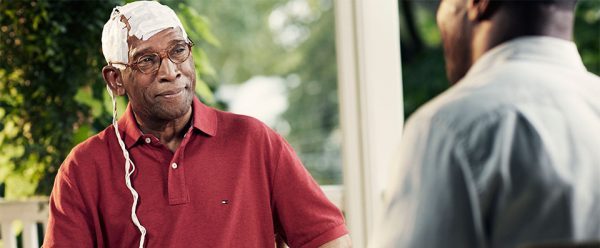Electronic skull cap that mimics acupuncture found to boost brain cancer survival by 13%
05/30/2017 / By Tracey Watson

Glioblastoma multiforme – or GBM – is a very dangerous type of cancerous tumor usually located in the cerebral hemispheres of the brain, but which can also develop elsewhere in the brain or in the spinal cord. This type of cancer is highly malignant because the cancer cells reproduce very quickly and are fed by an ample blood supply. Historically, the prognosis for those diagnosed with GBM has been grim; the median survival rate for patients who receive the standard treatment protocol of surgery, chemotherapy and radiation is 14.6 months after diagnosis, and only 30 percent live for longer than two years. About one in 10 patients will survive for more than five years.
Now, a new clinical trial may provide hope for those stricken with this deadly disease.
The trial, which is sponsored by Novocure Ltd., is one of several being undertaken to investigate the ability of low intensity alternating electrical fields, known as Tumor Treating Fields (TTF), to interfere with the ability of cancer cells to divide and multiply.
For the GBM trial, skull caps with special electrodes attached to battery packs were worn by 700 patients for upwards of two years. The electrodes emit gentle electrical impulses, which interfere with the ability of the cancer cells to multiply, eventually killing them. Patients who had undergone surgery to remove as much of the tumor as possible, and had completed a course of radiation treatment, were then asked to wear the cap, known as Optune, for 18 hours a day. The TTF treatment was given in conjunction with the chemotherapy drug temozolomide.
The results of the trial were impressive. At the end of the two years, 43 percent of the patients who had undergone chemotherapy and worn the Optune cap were still alive, in comparison to only 30 percent of those who had been treated with just the temozolomide. The five-year survival rate for those in the Optune trial was nearly three times higher, at 13 percent versus 5 percent for those undergoing only conventional treatment.
No trials were undertaken where patients only wore the Optune cap, but it would be very interesting to know how successful it might be for patients who do not undergo chemotherapy. After all, studies have found that, in spite of what the medical community may claim, chemotherapy is actually not a very effective treatment for cancer. In fact, it poisons the body while offering very little benefit.
A study by Dr. Hardin B. Jones, a former professor of medical physics and physiology at the University of California, Berkeley, studied the life spans of cancer patients for more than 25 years. His findings, which were published in the journal Transactions of the New York Academy of Sciences, revealed that people who did not have chemotherapy actually lived longer than those who did.
“People who refused treatment lived for an average of 12 and a half years,” Dr. Jones noted. “Those who accepted other kinds of treatment lived on an average of only 3 years.”
While the Optune treatment may not yet be readily available in many countries, and is prohibitively expensive in areas where it is accessible, there is a complementary treatment that works in a very similar way, is readily available, and is far more cost effective, namely acupuncture. Best of all, it doesn’t necessitate the use of poisonous chemotherapy. Acupuncture is a vital component of traditional Chinese medicine, and involves inserting thin needles into specific points on the body. It is based on the belief that there are patterns of energy known as Qi, which flow through the body and are essential for good health. Disruptions of this flow are believed to cause disease.
A study entitled “The Value of Acupuncture in Cancer Care,” published in the journal Hematology/Oncology Clinics of North America, explains that multiple studies have confirmed that acupuncture is safe and beneficial for treating many of the symptoms of cancer and its treatment, but that “the full extent to which acupuncture can be applied to oncology care is limited by research evidence regarding its efficacy and safety in treating and preventing cancer-related symptoms.” The authors of the study conclude, “It is expected that as more evidence continues to emerge, oncology acupuncture eventually will be integrated into standard oncology practice.”
Sources:
Tagged Under: acupunture, alternative medicine, complementary medicine, Optune, TTF, Tumor Treating Fields




















